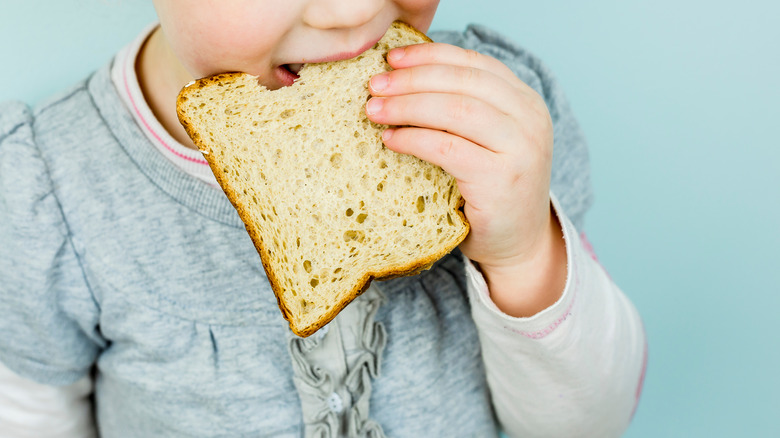Do Picky Eaters Have Stronger Or Weaker Taste Buds?
Being a picky eater is an unpopular identity in modern adult foodie culture. Praised is the diner who is "game for anything" and will try the funkiest cheese and weirdest fruit. Not so with picky eaters, who are sometimes mocked for their palates. Taste is a complex web of neuroscience, and every taste bud stimulus triggers a synapse in the brain. It's why spicy foods prompt pleasure and why chefs avoid serving food on blue plates. Science also tells us that foodies have less say over their preferences than you might think.
Whether you tease them or are them, you should know that picky eaters have particularly discerning palates. 25% of the human population has extra papillae (aka taste buds) on their tongues, which makes them physically more sensitive to perceiving tastes and prone to liking (or disliking) specific ones. In other words, picky eaters have stronger taste buds than the socially praised "I'll eat anything" club. Although, there is a pretty wide range in terms of an "average" number of taste buds. Anywhere from 2,000 papillae to 10,000 is considered normal for adults. Children are born with more papillae than adults, which could help explain why kids tend to be more prone to culinary pickiness that fades over time. 25% of two-year-olds are estimated to be picky eaters, refusing to eat certain foods and only eating a small repertoire of "safe foods" over and over for an extended period.
Picky eaters know what's up, actually
Maybe you think cilantro tastes like soap. Maybe you have a legendary sweet tooth. Either way, you have very little say in the matter.
A person's sense of taste is coded into their genetic makeup. Nurture also plays a role, and the foods that a person was exposed to as a kid color their flavor preferences into adulthood. While you can train yourself to like new foods over time (like tolerance to spiciness), your intrinsic sense of taste isn't an arena over which you have control.
Certain tastes are also associated with memories stored in the brain. If cookies or other comfort foods remind you of warm holiday parties with family, they'll deliver double the pleasure when you eat them. There's also the psychological aspect of social pressure on selective eating: If a person (child or adult) feels unwelcome pressure to eat and enjoy a certain food, they'll like it even less.
If you're an aspiring reformed picky eater, serve your meals with a side of patience. It takes between 10 and 15 times to eat a "new" food before a person's taste buds no longer register it as unfamiliar or unwelcome. Adjusting to new tastes is a marathon, not a sprint.

